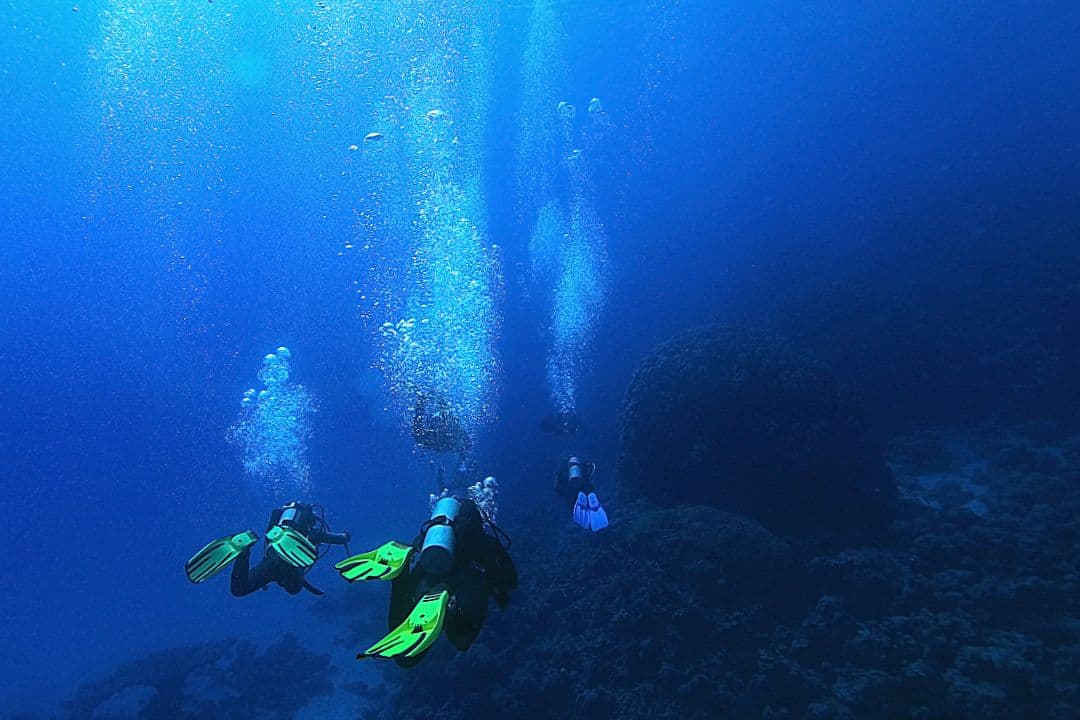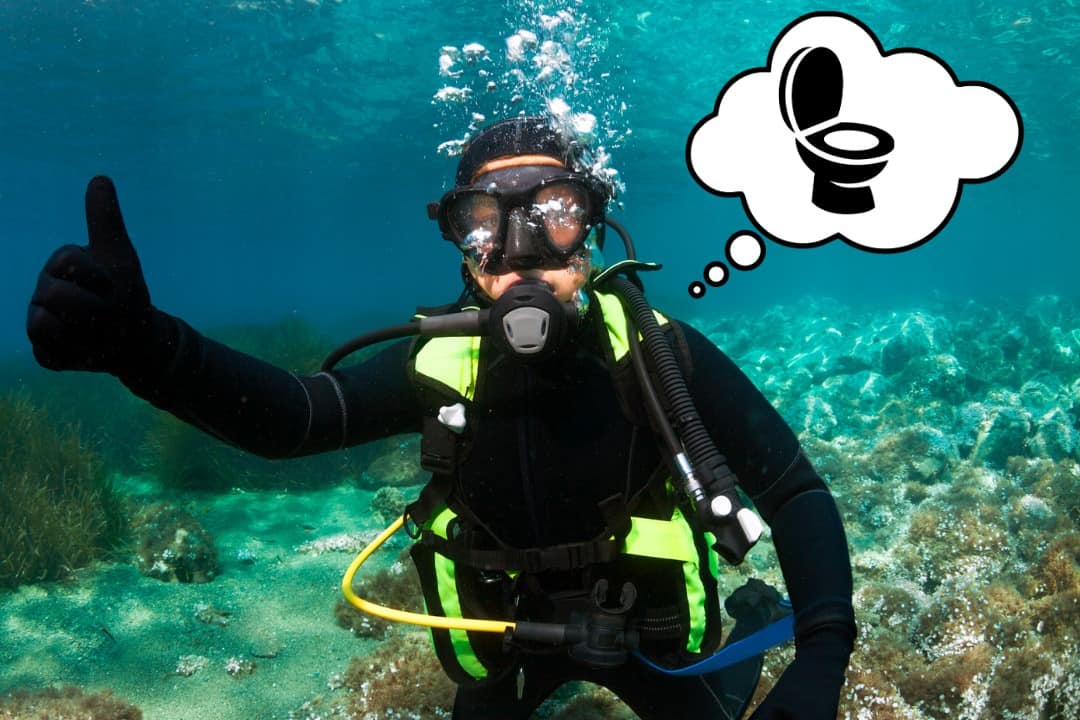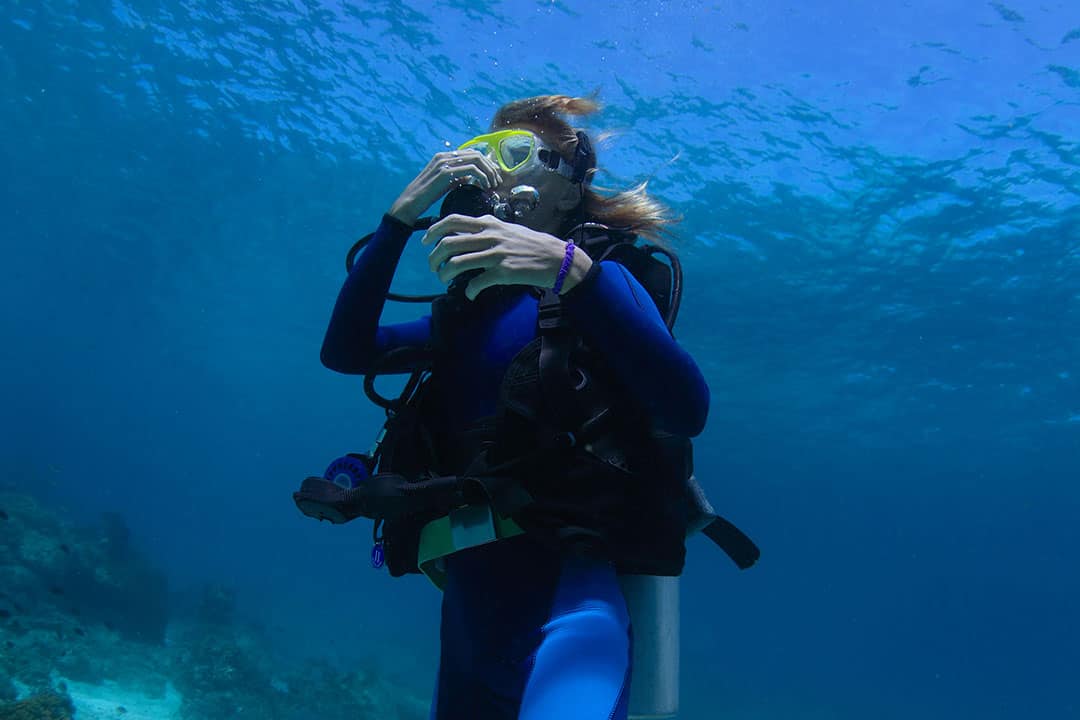You may be surprised how often the question, Can non-swimmers safely learn to scuba dive is asked.
You will find many websites that will tell you that you do not need to be able to swim to scuba dive.
They point out that the BCD is like a life preserver so it does not matter.
They are wrong. To learn how to scuba dive and to become a certified diver you must have some basic swimming skills.
We will explore what these skills are and explain why they are important. Even if you are a poor swimmer, you may still already have the skills you need.
Can non swimmers learn to scuba dive?
A non-swimmer can not safely learn how to scuba dive. To become a certified scuba diver, you need basic water skills. The minimum requirements are not very difficult, Swim 200 meters/yards (or 300 meters/yards in mask, fins and snorkel) without stopping and float or tread water for 10 minutes.
Basic Water Skills for Scuba Diving
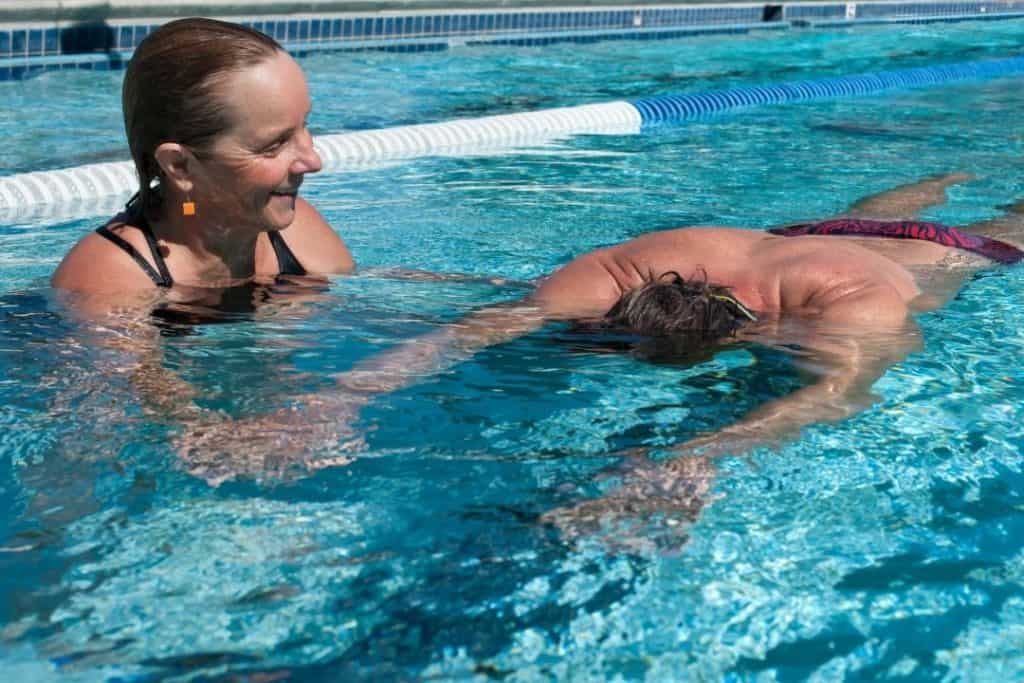
The first certification most scuba divers get is the autonomous diver, which PADI and SSI call Open Water Diver.
This level allows you to plan your own dives and with a dive buddy dive without a dive professional supervision.
To obtain this certification you have to show that you are fit to swim. The swim test has a surface swimming portion and a treading water portion. There are two options for the surface portion which is done in water too deep to stand in.
- Complete a 200-meter/200-yard swim without swimming aids.
- Complete a 300-meter/300-yard swim while using a mask, snorkel, and fins.
These two options are not timed. The other portion of the test requires you to float or tread water for 10 minutes without any aids.
As you can see from the requirements, you do not have to be a great swimmer to learn how to scuba dive.
Basic swimming skills and being comfortable in the water are the key elements.
Being a great swimmer may help you learn your underwater propulsion skills faster, but they will come even if you have just basic skills.
Learning to scuba dive is about reducing the risk.
Being comfortable in the water will lead to a better dive and a dive with less stress. Stress can lead to conditions that will shorten your dive or even to make poor decisions.
I have a BCD, Why Do I Need To Swim?
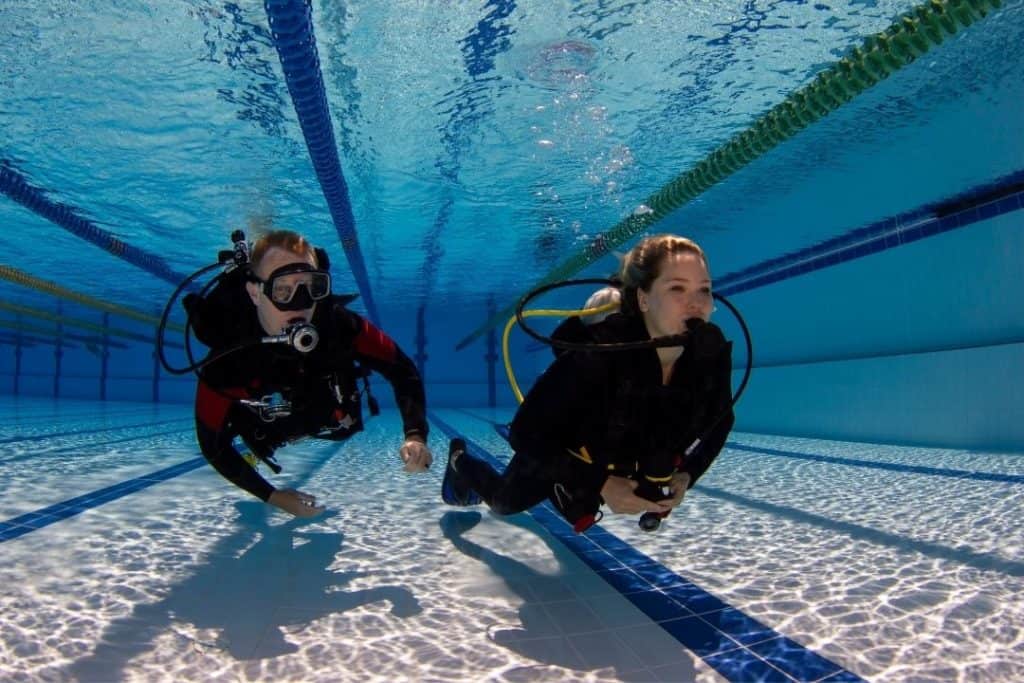
A Buoyancy Control Device (BCD) is a great aid to add buoyancy while on the surface, It will also make a surface swim easier.
Many of those you will tell you that you do not need to be able to swim to scuba dive will cite having a BCD. However, a BCD is not a cure all.
There may be times when you are in the water and not have your BCD.
One of the skills you will learn when getting your Open Water Diver certification is donning your scuba gear while in the water.
There may be times when it is not practical to put all your gear on while onboard a boat.
Instead, you will inflate the BCD, lower the scuba gear into the water, then enter the water yourself.
You then need to swim to your gear and finish donning it. It is really a simple task, but not if you can not swim.
How about after your dive? The procedures to reenter a dive boat will vary depending on the boat and water conditions.
It is not uncommon for the procedure to have the diver remove his equipment and pass it up to a crew member onboard the boat.
You then wait your turn to climb the ladder back into the boat. This will involve treading water or floating for a while and then swimming to the entry point.
Here is another one that we might not to want to think about, but does often happen.
What will you do if you fall overboard from a dive boat when you are not wearing your dive gear?
If the boat was moving fast at the time, you may be in the water for a number of minutes before the boat can return near you.
Most likely the boat will stop a short distance away to keep from hitting you and you will need to swim to it.
Non-swimmers And Discover Scuba Diving
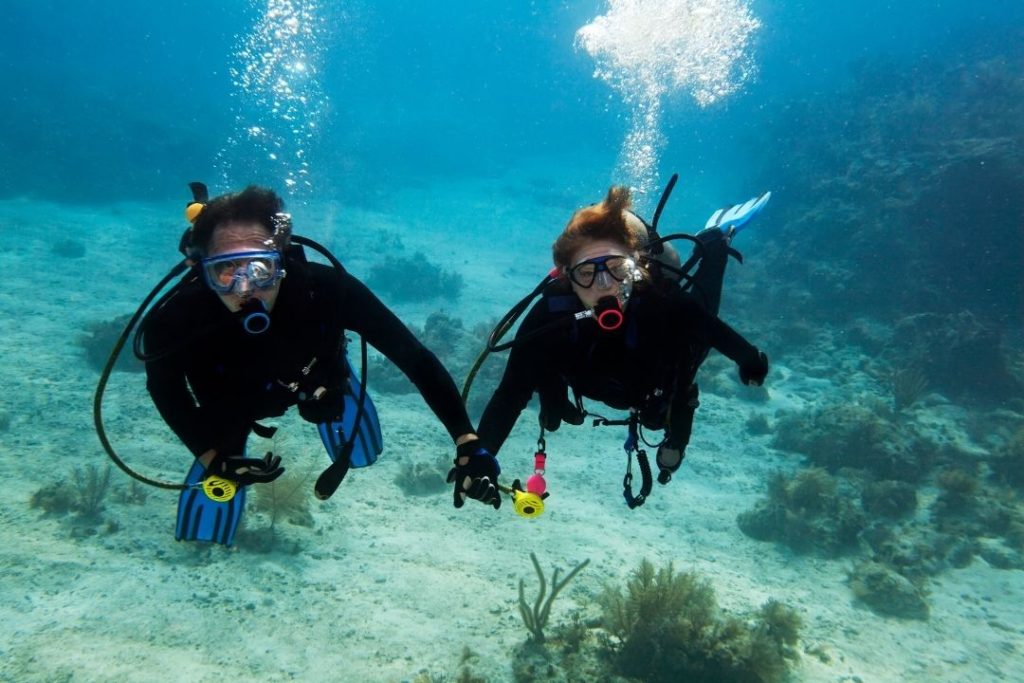
You will frequently see online comments that say you can learn to scuba dive without a swim test or even showing that you can swim.
Part of the situation that is keeping these comments alive are the introduction dives found in many locations around the world.
Many of the training agencies have short programs that allow those who are interested in becoming a certified diver to experience it in a controlled activity.
These programs go by a number of names such as resort dive, discover scuba and try scuba. Inaccurate advertising may state you can “Learn to Dive” with these programs.
These programs are great if you want to experience scuba diving. One of the reasons they were started was many people were interested in learning to dive.
However, they did not want to make the large investment that goes with getting certified without knowing if they would like it.
Trying it often provides the enthusiasm to continue to a certification course. These programs are similar to the first lessons of a scuba certification program.
You will learn most of the theory of the first classroom session, practice a few of the critical task and move into a confine or shallow water session.
These dives are limited to 40 feet (ca. 12 m) and you must dive with an instructor. The program does not allow you to dive with anyone else.
There is no swim test for these programs. However, the instructor will determine if you are comfortable enough in the water for it to be a safe activity.
Remember this is not learning to dive and you are not certified to dive if you complete the experience.
Non-swimmer Should Learn Basic Swimming Skills.
If you are a non-swimmer and want to learn how to scuba dive, learn the basic swimming skills.
You may be surprised how soon you will be ready.
If you would like to make any comments on this topic or have some observations about what swimming skills you feel are needed, feel free to add them below.
